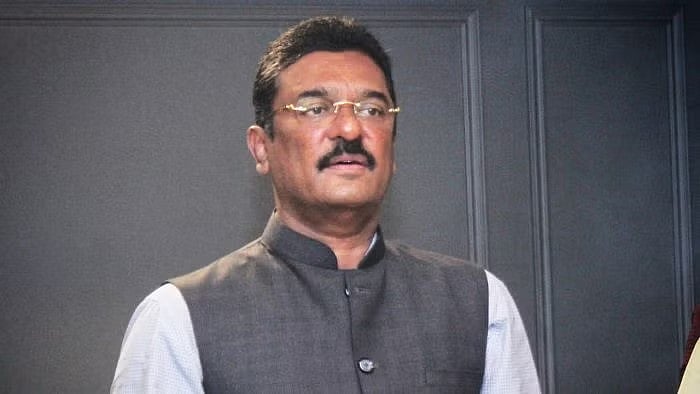Nitesh Rane, Maharashtra minister and Member of the Legislative Assembly, was accused of interfering in Muslim religious practices when he recently made a controversial statement that Muslims should hold 'virtual' sacrifice of animals. "This will increase the respect for Islam," said Rane.
Many Muslims felt that Rane's advice was an interference in their religious laws. However, there are Muslims who believe that verses in the Koran, the holy book of Islam, make it clear that the idea of sacrifice is symbolic. Dr Zeenat Shaukat Ali, former teacher of Islamic studies and founder and director general, Wisdom Foundation, said that the verse "Neither the flesh nor the blood of your sacrifices reaches God, but it is the righteous motive underlying them that reaches Him." (22:37), can be interpreted to mean that God does not demand a life as an expression of a believer's faith.
"It is not flesh or blood that God wants. God wants to know your intent," said Ali, explaining that the ritual remembers Prophet Abraham's willingness to sacrifice his son Ishmael to prove his love for God. God blessed Abraham when he was 90 years old and Hagar, one of his wives, was 80 years old, with a son. "The child was born as a testament to God's existence. Ishmael was dearest to Abraham and when he showed his willingness to sacrifice his son for the love of God, he was stopped from doing so. The sacrifice of the ram instead of Ishmael is not to be taken literally. The sacrifice can be a portion of your food, wealth, or work. It is spiritual," said Ali.
Altab Hossain, a 36-year-old content creator, believes that the Eid al-adha sacrifice is spiritual. "I am a practising Muslim and I believe that belief in Allah, his messenger, Prophet Mohammad, the Haj pilgrimage, the Ramzan fast, and the kalma, the oath of allegiance, are compulsory in Islam. One part of Haj is sacrifice but everyone does not do it because it is not compulsory," said Hossain who has faced estrangement with his family and community because of his beliefs.
"The Koran says sacrifice of animals is a very high form of worship, but their meat and blood do not reach Allah nor are these two things the real object of sacrifice."It is not a sin to not sacrifice an animal. The prophet was kind to animals and he introduced the concept of animal welfare in his community," Hossain added.

Muslims have said that animal sacrifice is a practice in other religions too and it is unfair to target them in a world where meat consumption is the norm. However, Farhat Ul Ain, senior advocacy officer at PETA India, said that halal food laws require animals to be healthy and killed by experts if they are to be used as food. "But animals are transported to livestock markets in brutal conditions. Many die during the transportation process because of suffocation and injuries. Halal laws prohibit killing of injured or sick animals," said Ul Ain. "The animals are slaughtered by untrained hands in full view of other animals. Children weep when they see an animal they acted for getting killed. Abraham's willingness to sacrifice was a test; why can't adults see reason?"
PETA said they are campaigning to get section 28 of the Prevention of Cruelty to Animals, which allows the sacrifice of animals for religious purpose, removed. PETA recently involved singer and actor, Zahrah Khan, as part of its campaign. “For Eid, many people honour Allah’s mercy by distributing vegan food or clothing, sponsoring children’s education or devoting volunteer time to charity. These acts of kindness benefit both humans and animals," Khan.
Muslims feel that the topic is sensitive and affects their religious beliefs. A member of the community commented, "Around 12,000 goats are killed every day in Mumbai for meat. This means nearly five million animals are slaughtered every year. Three lakh goats are sacrificed during Eid al Adha Qurbani. Is Rane asking everyone to eat virtual mutton?" However, community leaders have asked celebrants to avoid posting Qurbani photos and videos on social media to respect public sensibilities.









